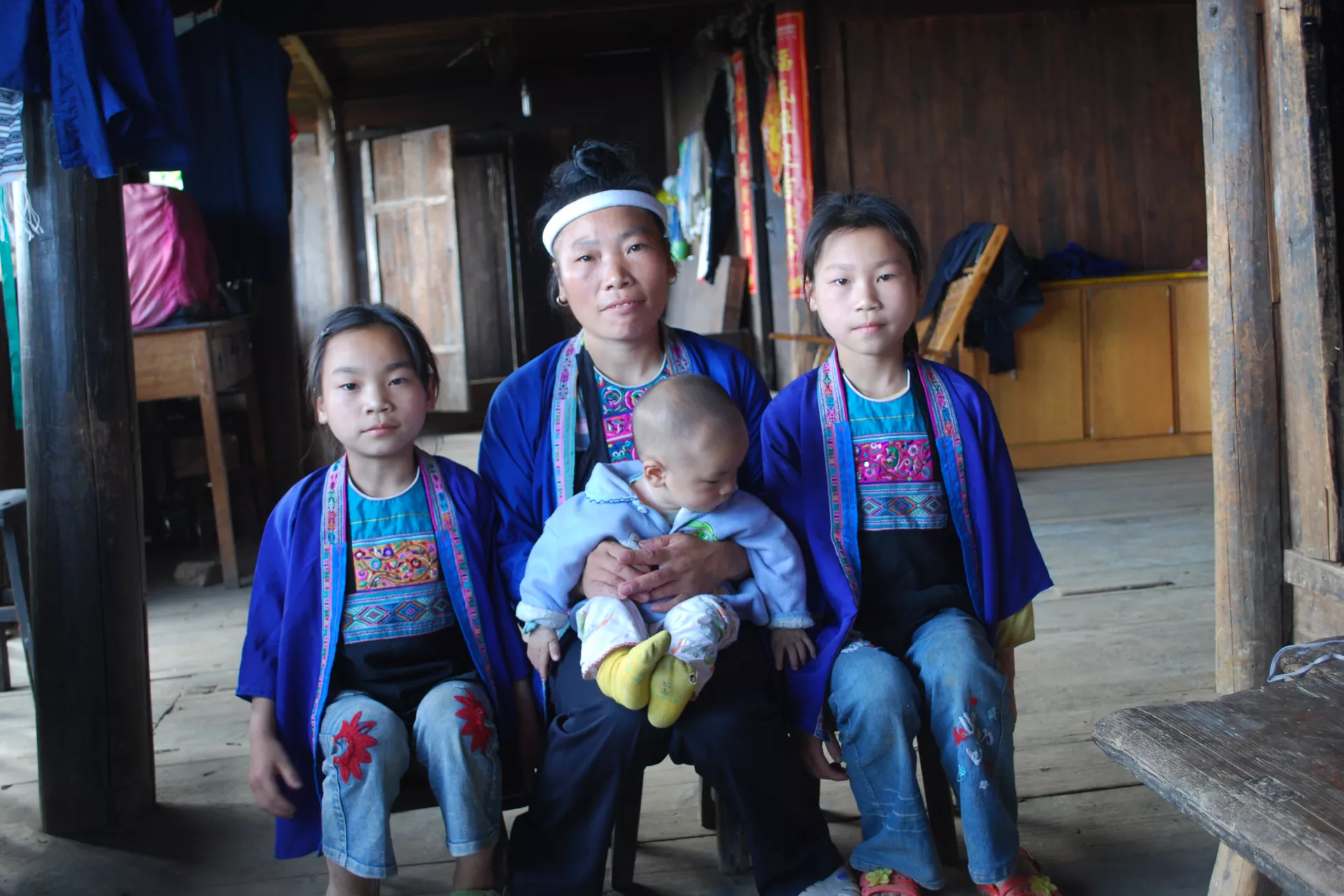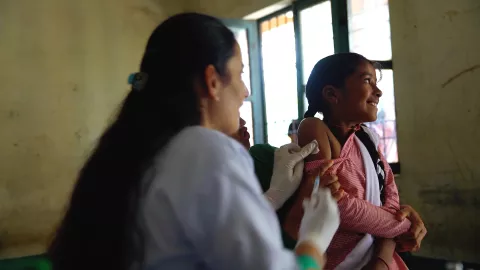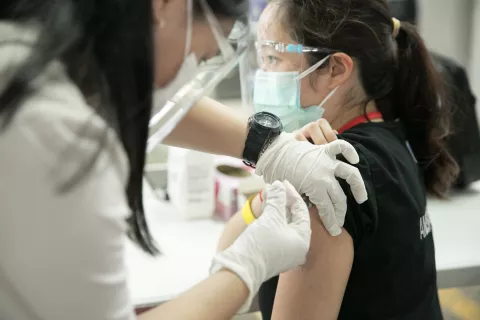Reaching Children Affected by Migration with Life-Saving Vaccines
Reaching Children Affected by Migration with Life-Saving Vaccines

- Available in:
- 中文
- English
Sanjiang County, Guangxi Province, June 9th, 2009 – Seven-month-old Zhang Yongjin has set a new record in his family, becoming the first to receive a dose of the Hepatitis B vaccine within 24 hours of birth. He is also the first to have a vaccination record book.
"I've never been immunized in my life," said his mother Ni Peijiang, 38 years old and of the Miao Ethnic Minority. "His two older sisters were not inoculated until they entered primary school."
Zhang Yongjin was delivered at home with the help of his grandmother. The nearest township clinic is about 20 kilometres away at the foot of the mountains. The day after the boy's birth, village doctor Wu Xi visited the family to inoculate the baby with the first dose of the Hepatitis B vaccine, as is recommended by the routine immunisation programme. Wu serves as the only doctor for the more than 2,000 people living in Gaoyang Village.
In some remote villages of Sanjiang County, Guangxi Province, the hospital delivery rate is under 30%. As part of the UNICEF-supported Expanded Programme on Immunization in Sanjiang, since 2006 the Ministry of Health, UNICEF and local counterparts jointly provide a 12 yuan incentive to help village doctors procure vaccines from the township clinic, visit households and administer the Hepatitis B vaccine within 24 hours of home delivery.
In addition to administering this vaccine, Dr Wu vaccinates infants and young children against the other diseases covered by the routine immunisation programme.
"Almost half of the villagers have gone to cities to find jobs. This migration resulted in delayed or missed vaccinations for the children that parents leave behind with relatives," Dr. Wu noted. "The grandparents were too old or weak to take care of the children, and the women were busy with the farm work and housework, or didn't know about immunisation."
According to Mr. Yang Linqing, Director of the County Centre for Disease Control (CDC), around 30 % of Sanjiang's 370,000 population have migrated to the cities. The number of left-behind children had reached 17,000 as of April 2009.
"My husband has been working in South China's Guangdong Province for more than 10 years. He only comes back during the harvest season and the Spring Festival, before leaving again," Ni Peijiang said. "I stay at home to take care of the three children, do farm work, and raise the pigs and chickens. I didn't know that my daughters should be vaccinated until the teachers asked to check their immunisation records when they entered primary school."
"Some of the grandparents and caregivers didn't know or even refuse to have the children vaccinated, saying that they were never vaccinated and have been fine," Mr. Yang said.
A recent baseline-survey conducted by the County CDC showed that, about 25% of the caregivers still thought immunisation was not good for their children's health. The misunderstanding was more prevalent among Miao ethnic minority, with around 54% holding that opinion.
Since 2006, UNICEF has supported the local CDC to carry out advocacy campaigns to increase awareness of the benefits of immunization via posters, songs in minority languages, TV commercials, and other ways.
"One of the things we are doing is to collect the information and monitor the vaccination of children affected by migration," said Mr. Yang. "The teachers, village administrative officers, and chieftains are all mobilized to identify those children. On the routine vaccination day, if the caregivers don't take them to the clinics, the village doctors will go and administer vaccination in their homes."
"Dr. Wu visits our home every month and tells us when to take the children for vaccination," the mother Ni Peijiang said. "I don't know the names of these vaccines but I understand now that they can prevent my children from getting sick. My son has a certificate and the doctor can check it to see what he needs."
For those young parents who took their children with them to the cities, some neglected their children's vaccination either because they were too busy or thought it would be expensive to get the vaccination in the big hospitals, according to local CDC officers.
Besides, it was also difficult to track down the vaccination records of the children who migrated from one city to another with their parents.



